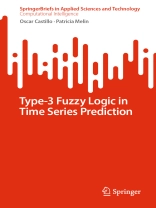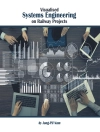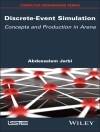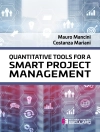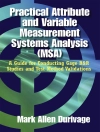This book focuses on the field of type-3 fuzzy logic for applications in time series prediction. The main idea is that a higher type and order of fuzzy logic can help in solving various prediction problems and find better results. In addition, neural networks and fractal theory are employed in enhancing prediction results. In this regard, several hybrid intelligent methods are offered. In this book we test the proposed methods using several prediction problems, like predicting COVID-19 and the stock market. We can notice that when Type-3 fuzzy systems are implemented to model the behavior of systems, the results in prediction are enhanced, because the management of uncertainty is better. For this reason, we consider in this book the proposed methods using type-3 fuzzy systems, neural networks and fractal theory to improve the prediction behavior of the complex nonlinear systems. This book is intended to be a reference for scientists and engineers interested in applying type-3 fuzzy logic techniques for solving complex prediction problems. This book can also be used as a reference for graduate courses like the following: soft computing, fuzzy logic, neural networks, bio-inspired algorithms, intelligent prediction, and similar ones. We consider that this book can also be used to get novel ideas for new lines of research, or to continue the lines of research proposed by the authors of the book.
Tabella dei contenuti
Chapter1. Type-3 Fuzzy Prediction.- Chapter 2. Type-3 for Prediction.- Chapter 3. Type-3 Fuzzy Logic in Time Series Prediction.- Chapter 4. Prediction with a Hybrid Interval Type-3 Fuzzy-Fractal Approach.- Chapter 5. Type-3 Fuzzy Aggregation of Neural Networks.
Circa l’autore
Oscar Castillo holds the Doctor in Science degree (Doctor Habilitatus) in Computer Science from the Polish Academy of Sciences (with the Dissertation “Soft Computing and Fractal Theory for Intelligent Manufacturing”). He is a Professor of Computer Science in the Graduate Division, Tijuana Institute of Technology, Tijuana, Mexico. In addition, he is serving as Research Director of Computer Science and head of the research group on Hybrid Fuzzy Intelligent Systems. Currently, he is President of HAFSA (Hispanic American Fuzzy Systems Association) and Past President of IFSA (International Fuzzy Systems Association). Prof. Castillo is also Chair of the Mexican Chapter of the Computational Intelligence Society (IEEE). He also belongs to the Technical Committee on Fuzzy Systems of IEEE and to the Task Force on “Extensions to Type-1 Fuzzy Systems”. He is also a member of NAFIPS, IFSA and IEEE. He belongs to the Mexican Research System (SNI Level 3). His research interests are in Type-2 Fuzzy Logic, Fuzzy Control, Neuro-Fuzzy and Genetic-Fuzzy hybrid approaches. He has published over 300 journal papers, 20 authored books, 100 edited books, 200 papers in conference proceedings, and more than 300 chapters in edited books, in total more than 1160 publications with h index of 93. He has been Guest Editor of several successful Special Issues in the past, like in the following journals: Applied Soft Computing, Intelligent Systems, Information Sciences, Soft Computing, Non-Linear Studies, Fuzzy Sets and Systems, JAMRIS and Engineering Letters. He is currently Associate Editor of the Information Sciences Journal, Applied Soft Computing Journal, Journal of Engineering Applications on Artificial Intelligence, Granular Computing Journal and the International Journal of Fuzzy Systems. He has been elected IFSA Fellow and MICAI Fellow member last year. Finally, he recently received the Recognition as Highly Cited Researcher in 2017 and 2018 by Clarivate Analytics and Web of Science.
Patricia Melin holds the Doctor in Science degree (Doctor Habilitatus D.Sc.) in Computer Science from the Polish Academy of Sciences (with the Dissertation “Hybrid Intelligent Systems for Pattern Recognition using Soft Computing”). She is a Professor of Computer Science in the Graduate Division, Tijuana Institute of Technology, Tijuana, Mexico, since 1998. In addition, she is serving as Director of Graduate Studies in Computer Science and head of the research group on Hybrid Neural Intelligent Systems (2000-present). Currently, she is President of NAFIPS (North American Fuzzy Information Processing Society). Prof. Melin is the founding Chair of the Mexican Chapter of the IEEE Computational Intelligence Society. She is member of the IEEE Neural Network Technical Committee (2007 to present), the IEEE Fuzzy System Technical Committee (2014 to present) and in Chair of the Task Force on Hybrid Intelligent Systems (2007 to present) and she is currently Associate Editor of the Journal of Information Sciences and IEEE Transactions on Fuzzy Systems. She is member of NAFIPS, IFSA, and IEEE. She belongs to the Mexican Research System with level III. Her research interests are in Modular Neural Networks, Type-2 Fuzzy Logic, Pattern Recognition, Fuzzy Control, Neuro-Fuzzy and Genetic-Fuzzy hybrid approaches. She has published over 220 journal papers, 20 authored books, 80 edited books, and more than 300 papers in conference proceedings with h-index of 82. She has served as Guest Editor of several Special Issues in the past, in journals like: Applied Soft Computing, Intelligent Systems, Information Sciences, Non-Linear Studies, JAMRIS, Fuzzy Sets and Systems, and Engineering Letters. Finally, he recently received the Recognition as Highly Cited Researcher in 2017 and 2018 by Clarivate Analytics and Web of Science.
